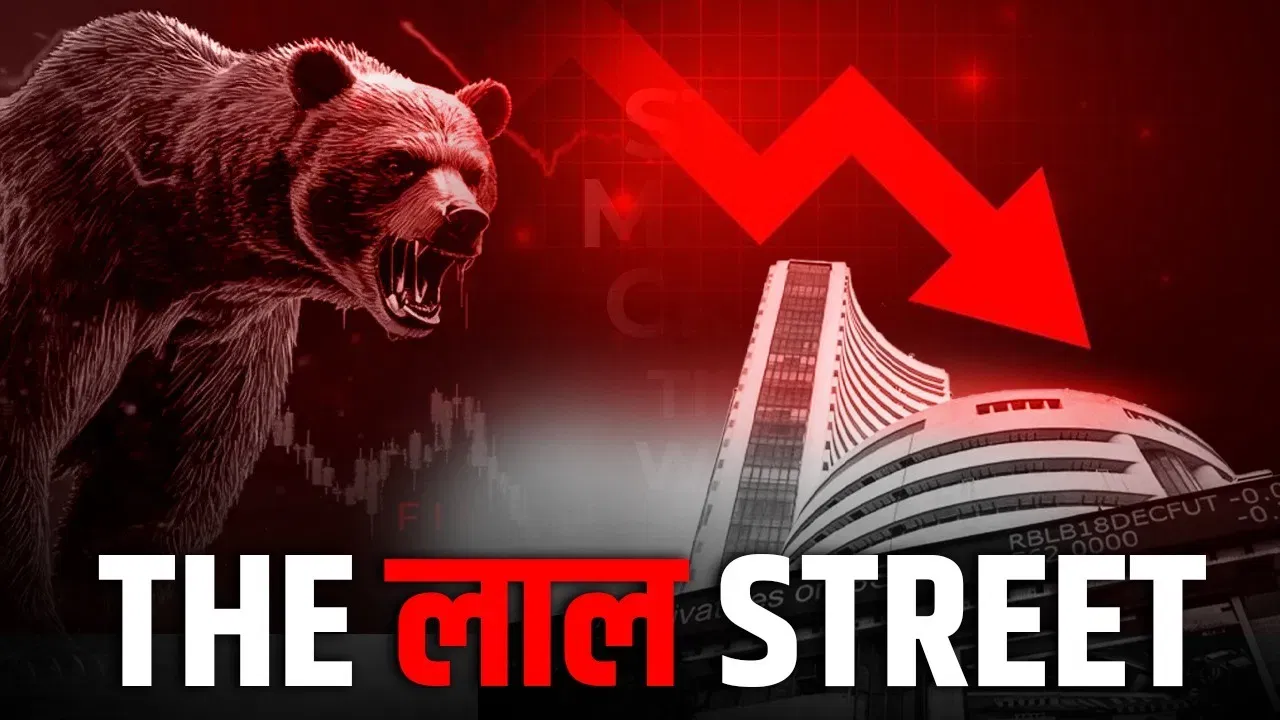How much more will the stock market fall now?
There is an outcry in the stock market these days. The pockets of BSE and NSE investors have been hit by about ₹ 1.4 lakh crore. BSE shares have broken 22% from the high level of June to Bear Zone, while NSE shares have also fallen 18%. The biggest reason for this decline is Jane Street Scandal, SEBI strictness, reduction in turnover and downgrade of brokerage firms. Let us tell you what are the reasons behind this huge loss.
Jane Street Scandal increased the crisis
For some time, there was a strictness of SEBI and downgrade of brokerage firms on BSE and NSE shares, but Jane Street Scandal worked to add ghee to the fire. On July 3, SEBI banned the entry in the Indian market on the American Quant Trading firm Jane Street in an interim order and freezed its ₹ 4840 crore assets. SEBI says that Jane Street manipulated the bank Nifty extensively. This action caused a major setback to the derivatives market. outcome? BSE shares fell from ₹ 3,030 to ₹ 2,376 on June 10, causing ₹ 26,600 crore to investors. At the same time, NSE shares fell from ₹ 2,590 to ₹ 2,125 on June 21, which reduced its market cap to ₹ 1.15 lakh crore.
Brokerage firms reduced ratings
Many brokerage firms downed BSE and NSE ratings due to regulatory uncertainty and market volume reduction. IIFL Capital reduced the BSE rating from ‘Ad’ to tightened. Brokerage says that SEBI’s strict rules, increasing monitoring on other trading firms and increasing damage by retail investors will put pressure on the volume of the exchange. Earlier, Motilal Oswal also reduced the BSE rating, expressing concern about the dominance in the market after the change in expiry day. Jefferies says that Jane Street had only 1% stake in BSE turnover, but changes and volume pressure in expiry day is a bigger threat. According to Jefferies, a reduction of premium estimate in FY 2026 may cause a decline of 0.6–0.7% in the earnings.
The impact of SEBI’s strictness and change in expiry
According to the latest SEBI data, retail investors in derivatives (F&O) trading incurred a loss of ₹ 1.05 lakh crore in FY 2025. There were 86.3 lakh traders in FY 2024, which increased to 96 lakhs in 2025. However, the average loss increased from ₹ 86,728 to 27% to ₹ 1,10,069. Talking about the volume, there is also heavy pressure in it. From September 1, NSE expiry will be held on Tuesday and BSE on Thursday. IIFL estimates that this can make BSE volume fall to 10–12%. On this basis, IIFL reduced the valuation of BSE from 50x to 45x and described the fair value of ₹ 2,200.
High-frequency trading is also threatened
High-frequency traders, who trade through colocation servers, have 55-60% share in derivatives volume. IIFL says that the increasing monitoring of SEBI on these traders can reduce volume in the near future. Although, the possibilities of earning in the long run are good, but the challenges are at the moment. The risk in the market has increased due to SEBI’s derivatives segment and strict rules.
